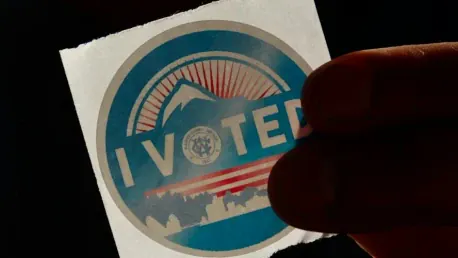Election misinformation refers to incorrect or deceptive information about elections that various actors may spread to trick voters or disrupt the voting process. This kind of false information comes in many shapes and sizes. It can spread in multiple ways, such as social media, regular news outlets, and even personal conversations. While misinformation can take various forms, there are some key aspects shared by these numerous types of misinformation. They usually include false information about the voting process, misleading information about certain candidates or propaganda, manipulated content, fake news, and even tampered data regarding the results.
Fake news, disinformation, and propaganda are dangerous tools in general, but they can become particularly harmful and disruptive at election time. This November, Americans will vote on the next US president. The future president will undoubtedly change people’s lives both at home and abroad, making the result of this election process extremely important for everyone. This has made the fight against misinformation extremely important in 2024. While the process of avoiding and stopping the spread of fake news typically involves efforts from the government, social media platforms, and fact-checking organizations, the good news is most people can also take effective actions against it.
Using Critical Thinking
According to The Washington Post, one of the first steps needed to avoid misinformation is knowing why it was created in the first place. This can be done by using a process known as critical thinking, which involves rationally analyzing facts and arguments.
To put it simply, people should ask themselves why they are reading a certain piece of content, and who would benefit if that piece of information is thought to be true. Moreover, Americans should probably familiarize themselves with the known fake news and false data about the election, and try to discover the patterns that may have been used to create them.
Reading Composedly
Another great way of avoiding misinformation is simply taking the time to read the news and effectively digest it before sharing the information. Fake news, disinformation, and propaganda usually work by appealing to people’s emotions, and social media platforms can be used to amplify these messages and make them viral. By taking the time to evaluate their authenticity and importance, people can prevent the spread of misinformation.
Discovering the Source
When it comes to reading the news, the original source of the information is extremely important. A reputable news outlet is undoubtedly more trustworthy than a blogger, and the same principle can also be applied to social media channels and more. This is precisely why people should always try to discover the original source of the narrative and evaluate its reputation.
Where has the information appeared and why? Is the source trustworthy? Would it risk its reputation just to spread false information about the election? Asking these questions could prove vital in 2024.
Reporting Misinformation
According to the North Carolina State Board of Elections (NCSBE), reporting fake news, disinformation, and propaganda is just as critical as avoiding it. While social media platforms are designed to allow the spread of posts until they become viral, most of them also allow users to report false information.
Platforms like Facebook, Instagram, LinkedIn, and Twitter prompt users to mark false news, report harmful posts, reduce the spread of false information, recognize and report spam, and even report direct messages. Moreover, federal agencies, like the Cybersecurity and Infrastructure Security Agency (CISA), are also known to take action against reported misinformation.
Cross-Checking Information
Fact-checking involves looking at how accurate and trustworthy information is by comparing it to several other sources. Americans should check multiple sources to confirm a single piece of information before, during, and immediately after the November elections. They need to look at how reliable these sources are, see if they match up, keep in mind that biases are possible, and think about the bigger picture.
It’s worth noting that facts can be twisted by leaving out important details, presenting them in a misleading way, or even by being written by someone who favors a certain candidate.
Using Fact-Checkers
Time is of the essence in the digital age, and people may not have the time to verify every single piece of information during elections. The good news is that multiple fact-checkers are now available to help them avoid fake news, disinformation, and propaganda. According to The Washington Post, social media platforms now boast fact-checking features, while numerous independent sites that serve the same purpose also exist.
The Washington Post’s Fact Checker, Snopes and PolitiFact are just some of these fact-checking websites.
Keeping an Open Mind
Remaining impartial is very important when dealing with a new piece of information, and even more so during elections. Misinformation is often spread accidentally by those who hope it is genuine because it aligns with their own opinions. By keeping an open mind and always looking at the evidence, people can avoid spreading fake news, disinformation and propaganda.
Furthermore, social media algorithms often “learn” their users’ preferences, so open-minded people tend to be exposed to better or more information in the first place.
Why Is It Important to Stay Away from Election Misinformation?
Staying away from false information during elections matters because it helps keep voting fair and democratic. Correct facts allow voters to choose their favorite candidate based on what they stand for, and what they and their party do, or have done before.
In contrast, false information can trick voters, distort what people think, and even stop them from voting. It can also make them doubt if elections work properly to begin with. When voters stay up to date with real facts, they can make smart choices, which makes democracy work better.
Moreover, Americans should keep in mind that voters have a job to do during elections. One of their duties as citizens is to avoid spreading fake news, disinformation, and propaganda. By doing this, they can make sure all will vote fairly, and their votes will be based on real facts.









